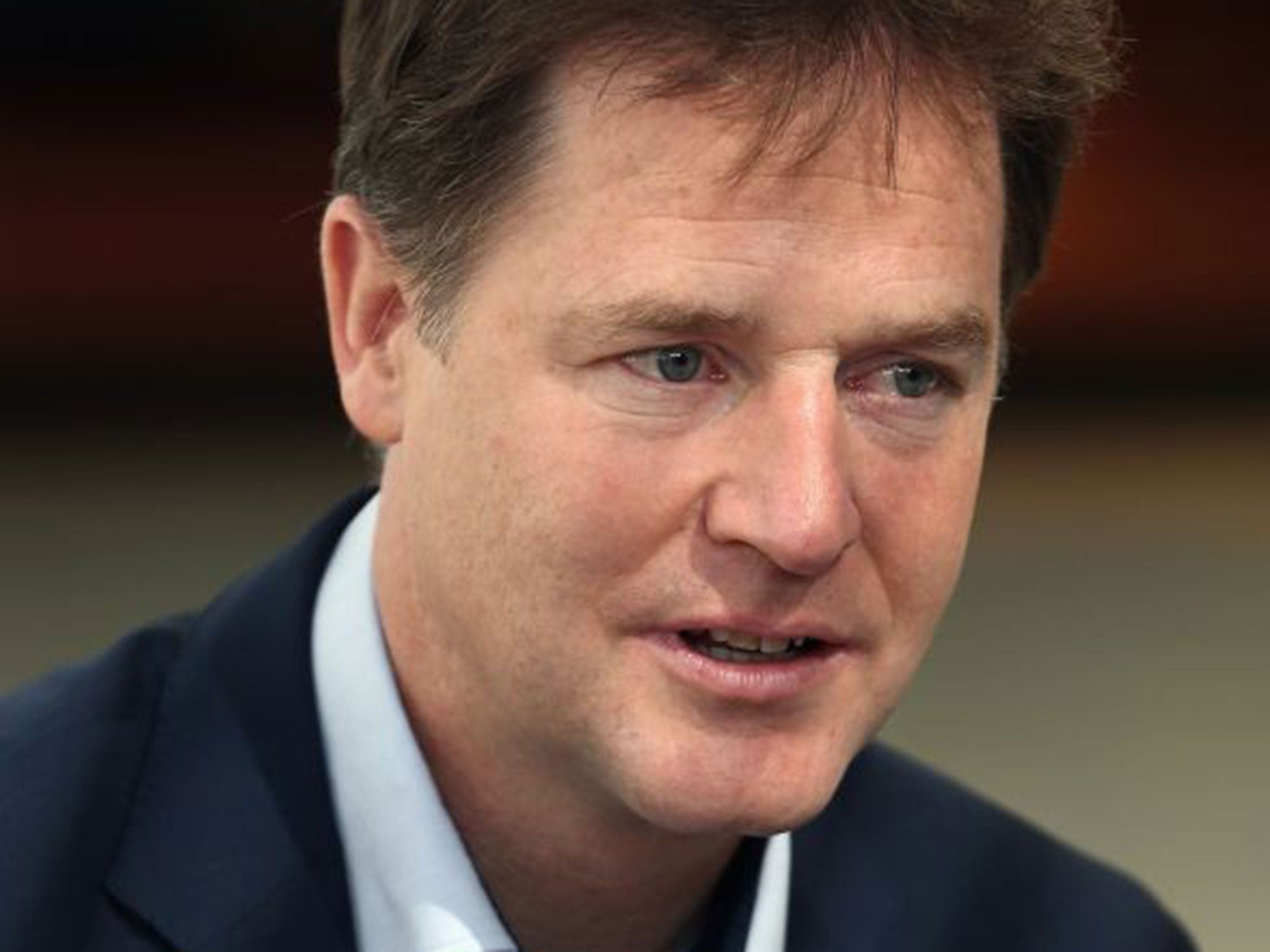Nick Clegg's paradox: the policies are fine, he's not
Demiation is a word I've invented. It means to be cut by half, the likely fate of Lib Dem MPs


The paradox of centrist politics is that elections are supposed to be won in the centre ground, but the one party that occupies precisely that territory is facing demiation in next year's election. Demiation is a word I've invented to cut through pedantry about whether decimation means to cut by one 10th or to destroy utterly. Demiation means to be cut by about half, which is what is likely to happen to the number of Liberal Democrat MPs (currently 56) next May.
In YouGov's map of where the voters place parties on the left-right spectrum, the Lib Dems used to be seen as left wing, but not as left wing as Labour. After the last election and the forming of the coalition, they were seen as having moved sharply towards the centre. Since then, they have stuck to a point just to the left of the centre, which is where the voters, on average, place themselves.
At the same time, Labour moved further to the left on the ideological map, while the Conservatives have moved further to the right. Despite the perception of a widening gap between the two larger parties, the Lib Dems have failed to benefit from their position in the moderate middle.
One explanation is that the terms left and right don't mean as much to most people as they do to political obsessives, and I am sure that is part of the explanation. Yet I don't think it is a coincidence that the most electorally successful leader of the democratic era, Tony Blair, was logged by YouGov as just to the right of centre. So why is Nick Clegg, the leader now closest to Blair's vacant slot, the most unpopular of the four main party leaders?
Other things are going on. One is the breaking of promises. It turns out that the voters notice and care when a party and its leader make a solemn pledge, which they underline with personal declarations and big signatures on placards, and then break it. It is good and democratic and right that there should be a heavy price to pay. The voters might understand that some policies have to be traded if no party wins a majority in the Commons, but the Lib Dems had marked the tuition-fee promise out as special.
This makes it harder for the Lib Dems to change any policies. This month, Clegg said he wanted to reform the bedroom tax. It seemed a sensible decision. The party accepted that public spending has to be cut, but cutting the spare room subsidy had worked out badly, so why not try to change it and make it fairer?
Sean Kemp, who used to be Clegg's special adviser, explained why not. The biggest reason people won't vote for the Lib Dems "is not about policies at all, it is about trust", he wrote. "Having the words 'U-turn' on the front of the Daily Mirror doesn't really help with that."
Last week, Clegg gave us another reason for distrusting his party, which goes to the heart of the centrist paradox. The Lib Dems failed to expel David Ward, the MP for Bradford East – or even to extract a meaningful retraction from him – after he said that, if he lived in Gaza, he "probably … would" fire a rocket into Israel. There is nothing wrong with a political party taking sides over Gaza. I don't agree with it, but there is a big market in British politics for an anti-Israel position. Indeed, Ed Miliband has adopted a moderate version of it, opposing the Israeli incursion into Gaza.
But Ward went much further than that, appearing to condone the firing of rockets intended to kill civilians. When challenged, he issued a statement: "My comments were not in support of firing rockets into Israel. If they gave the opposite impression, I apologise." The next day, however, he repeated himself. If he lived in Gaza, he said, "I might well resist". That is an ambiguous phrase, and again, he relied on a quibbling difference between understanding why people do something and approving of it.
This ambiguity is not helped by the Lib Dems' record. Two years ago, Jenny Tonge was eventually forced to resign from the party for saying: "Beware Israel. Israel is not going to be there for ever in its present form ... One day, the American people are going to say to the Israel lobby in the USA: enough is enough."
It is possible to disagree with the policies of the Israeli government without condoning the murder of Israeli civilians. But Ward is playing the same sectarian politics as his neighbour in Bradford, George Galloway, assuming that hostility to Israel appeals to the quarter of his voters who are Muslim. This is the Lib Dem problem. They appear to be in the centre of British politics because they are "left wing" in the urban North and "right wing" in the rural South-west.
Blair was successful because he was a consistent centrist. Clegg is less successful because he is in the centre to try to hold together a party that stands for different things in different parts of the country.
Join our commenting forum
Join thought-provoking conversations, follow other Independent readers and see their replies
Comments
Bookmark popover
Removed from bookmarks